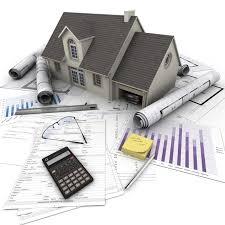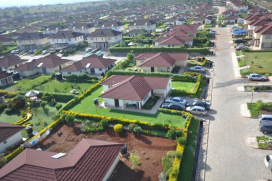Real Estate Predictions For 2021
Real Estate Predictions For 2021
The current state of economic uncertainty and recession has put players in real estate, just like other industries, in an awkward situation. Even so, real estate is no stranger to tough economic times and market chaos. The industry’s resilience has been quite remarkable going by past events that saw it recover and return to growth within a relatively short time.
2021 will we see more of the same results experienced in 2020? How will the real estate market in Kenya look like during the year? Can the industry leverage its power of resilience to improve its prospects? Regardless of your place in the vast real estate value chain, here are the 2021 trends and predictions that you need to know!
Real Estate Trend & Prediction #1: Few new housing units
As you may already know, real estate development is a capital intensive venture that mostly needs cash infusion from various financial institutions. The economic devastation brought about by the pandemic has seen most property developers suspend their projects and others stumble with their credit facilities. In June 2020, the Central Bank of Kenya (CBK), a body charged with monetary authority of Kenya, announced that the value of non-performing loans (NPL) had hit Sh366 B, a 13-year high.
It is not known how much of these bad loans belonged defaulters from the real estate industry but your guess is good as ours. Fitch Ratings, a leading American credit rating agency, forecast that non-performing loans (NPL) ratio will rise to about 15% by end-2020, and even higher in 2021. The aftermath of this financial quagmire is that few properties will be put up in the market throughout 2021. In the unlikely scenario that the economy recovers rapidly, we will have property developers complete units whose construction was suspended at the height of COVID-19 pandemic. Otherwise, we predict that very few units will be built from scratch in 2021.
Real Estate Trend & Prediction #2: Property prices will fall
The ensuing economic recession from the pandemic has greatly destabilized both the supply and demand side of the market. Already, the government is planning to phase out tax relief measures by January 2021. With no semblance of accelerated growth, these actions will further subdue market performance. As result, property developers who are under pressure to settle their outstanding debts will be forced to reduce the prices so that the units can be sold much faster. However, that will be out of sheer luck because potential buyers on their part are also hard-pressed for cash. Everyone’s focus is on survival and rising from the ashes like a phoenix. Large capital expenditures may not be welcome in the short to medium terms. Nevertheless, this would be a great moment for a discerning investor to go shopping.
Estate Trend & Prediction #3: Growth in online real estate services
One of the few silver linings in this pandemic would be the growth of real estate services in the online space. The enforcement of lockdowns resulted in many people spending much of their time on the internet browsing random stuff. “It is therefore important for real estate companies to position themselves in 2021 to tap into this new trend to generate more value not only for the company but for the customers as well.
Some of the trends include e-transactions, live streaming of open house, setting up of virtual tours, increased digital marketing efforts and so much more. We predict that these trends forged in 2020 will continue to hold in 2021 and probably beyond.
Real Estate Trend & Prediction #4: A real estate market crash looks unlikely
Given the bad news we keep hearing from the financial services sector, it is easy to believe that the country is on the verge of collapse. Indeed, the country’s fiscal situation is the red zone. However, as far as, the real estate industry is concerned, a housing crash is unlikely to happen. This is because most home purchases in Kenya are not buoyed by a mortgage. All the same, it’s impossible to know for sure if other factors could bring the property market tumbling down like a house of cards.
Real Estate Trend & Prediction #5: Working from home
Among the many trends that are emerging from this pandemic, none could be more popular than working from home. Companies are quickly realizing that they have unnecessarily leased huge office spaces while some tasks can be easily done remotely. Inadvertently, expenses have been eating into the profits. The tough economic times will force companies to rethink their workplace operations. Consequently, we predict that a good number of businesses will reduce their office space use as a cost-savings measure. This will see a cutback in commission for real estate agents and property managers. For developers of commercial spaces, they should observe closely the trends. Already there is an oversupply of commercial space in Nairobi.
Real Estate Trend & Prediction #6: safety and wellness in built environments
Another positive outcome from the pandemic has been the increased consciousness of hygiene, safety and wellness. We predict that various sub-categories in the greater real estate industry will take a cue from this latent lesson. The industry will need to meet higher standards of cleanliness and safety to make tenants and customers feel safe and attract them back – particularly at hotels, office buildings, retail and restaurants.
Real Estate Trend & Prediction #7: Affordable housing is still on the agenda
If there’s one single lesson that we can all learn from this pandemic it would be the importance of having your own home in the city. Indeed, there is nothing more important than a good, safe, secure home. COVID-19 has gone to show how vulnerable our lives can be when a basic need like housing is threatened. Indeed, large swathes of the population across all income levels were affected. We, therefore, predict that affordable housing will still feature prominently in the industry.
That COVID-19 has catalyzed transformation across industries including real estate is not in doubt. Some of these trends will probably go beyond 2021. However, the waves of changes give the real estate industry players a chance to reshape the thinking that goes into our built environment. Are the spaces sustainable for work and lifestyle for the new normal?
https;//ownspace.co.ke







There are no comments yet
Leave a Comment